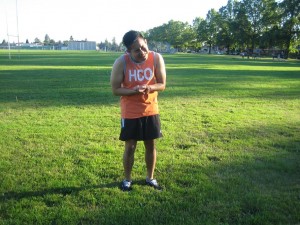A dislocated finger is a common injury where the bones in a finger are moved from their normal position. This can occur on any finger on the hand and commonly occurs on the middle knuckles of all fingers excluding the thumb. Finger dislocations usually happen without any fractures but there are cases that a break also occurs.
https://www.youtube.com/watch?v=GFuvZvI_-B0
Finger dislocation commonly occurs to those who do strenuous physical activities or to those who play sports activities.
Common causes of a dislocated finger:
- An object with force may strike a finger.
- Equipment such as pads or clothing may cause the finger to get caught within.
- You may fall on your hands which may cause a dislocated finger.
Signs and symptoms of a dislocated finger:
- Difficulty or inability in moving one or more fingers.
- The finger bone appears to be dislodged.
- The finger(s) appear crooked and swollen.

If you dislocate your finger, you should immediately seek medical attention, so your doctor can treat the injury as soon as possible to prevent any complications or disability. - Pain coming from the dislocated finger(s).
- Numbness and tingling in severely dislocated finger(s).
- A break in the skin in serious cases, medical attention should be sought immediately if this is the case.
- Discoloration of the injured finger.
Treatment for a dislocated finger:
- Swelling will occur on the dislocated finger(s), remove any attached accessories from the finger such as jewelry, rings, etc.
- Apply an ice pack onto the dislocated finger(s) and elevate the finger onto the victim’s chest.
If you dislocate your finger, you should immediately seek medical attention, so your doctor can treat the injury as soon as possible to prevent any complications or disability. Do not try to move the finger as it may cause more damage, try to apply a splint on the injured finger onto the finger beside it to support it.
Your doctor may perform an x-ray scan to determine how serious the dislocated finger is and will apply anesthesia or painkillers to reduce discomfort or stop the pain and then realign the bones. Your doctor may also do a second x-ray scan to see if the dislocated finger was correctly realigned.
For a few days, your finger(s) should have a splint or be buddy splinted to another finger, so it can heal. Your doctor may also prescribe pain medications to help you ease the pain and prevent any discomfort. Usually, it would take around four (4) to eight (8) weeks for a dislocated finger to fully heal and return to normal.
Disclaimer / More Information
The material posted on this page on a dislocated finger is for learning purposes only. Learn to recognize the signs and how it is managed by taking a first aid and CPR class with one of our training providers.
